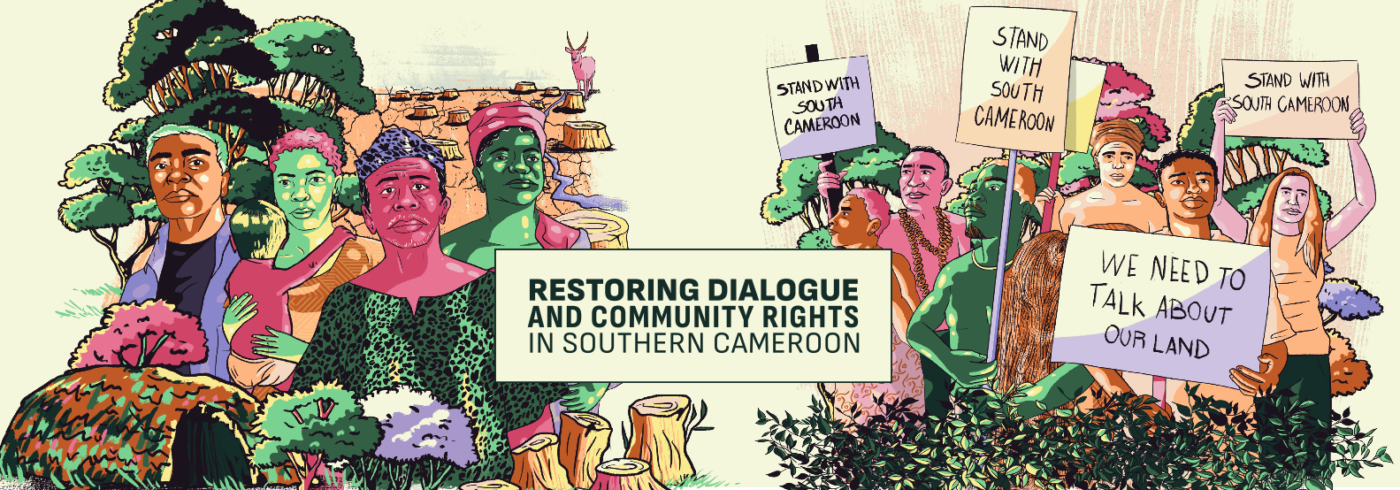September 17th, 2024
Land Rigths Now and Transparency International Cameroon (TI-C) has released a damning report detailing ongoing human rights violations and environmental destruction caused by Sud-Cameroun Hévéa (SudCam), a subsidiary of Halcyon Agri Corporation Limited, in Southern Cameroon.
The report The long way of suffering for Indigenous Peoples and local communities outlines a complex history of land acquisition and exploitation dating back to 2008, when SudCam first requested a concession from the Cameroonian government. Over the years, the company has expanded its operations, leading to significant displacement of Indigenous Peoples and local communities from their ancestral lands. This report is part of an ongoing engagement with the affected communities, revealing a pattern of broken promises from SudCam that have failed to yield concrete improvements in the lives of residents. Despite some attempts at social projects and community engagement, the overall impact on local populations has been severely negative by degrading food security and not showing real improvements in healthcare systems and education in the area. In light of these ongoing issues and unfulfilled commitments, local communities are now calling for the restoration of meaningful dialogue with both the company and the government. Their primary goal is to establish decent living and working conditions, addressing the numerous challenges they’ve faced since SudCam’s arrival in the region. TI-C and the leaders of local communities are now organising a national public campaign, amplified by the Land Rights Now program at the international level.
Key Findings
- Land Rights Violations: SudCam has been operating since 2008 without proper Free, Prior, and Informed Consent (FPIC) from local communities, leading to the loss of ancestral lands and access to vital forest resources.
- Environmental Destruction: Over 10,000 hectares of dense tropical rainforest were destroyed between 2011 and 2018, threatening local biodiversity and the nearby Dja Wildlife Reserve.
- Poor Working Conditions: Workers report mistreatment, unfair dismissals, and a lack of proper contracts. Many are forced to work without social security benefits or fair compensation.
- Inadequate Living Conditions: SudCam’s worker camps suffer from overcrowding, poor sanitation, and inadequate healthcare facilities.
- Community Impact: Local communities, including Indigenous Baka people, face food insecurity, loss of cultural heritage, and increased poverty due to the plantation’s expansion.
Recommendations
The report calls for immediate action from SudCam, the Cameroonian government, and international stakeholders:
- SudCam must engage in meaningful dialogue with affected communities and improve working conditions.
- The Cameroonian government should ensure forest restitution to displaced communities and promote sustainable development models.
- Donors and financial institutions should divest from destructive projects and support community-based forest management.
For more information, please contact:
-
Stéphanie ANYOU OBAM – press officer for TI-C – (237) 695 06 69 29
-
Lucas Swiegot – campaigner for Land Rights Now – lucas.swiegot@oxfamnovib.nl



